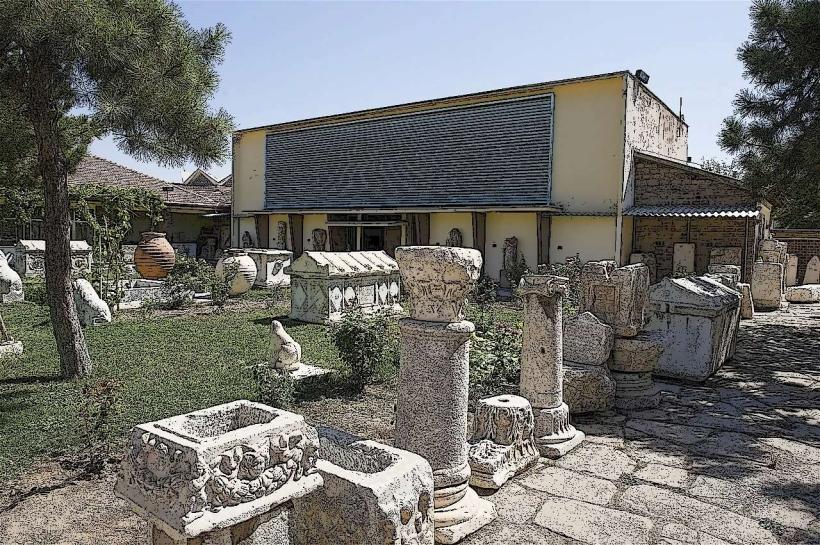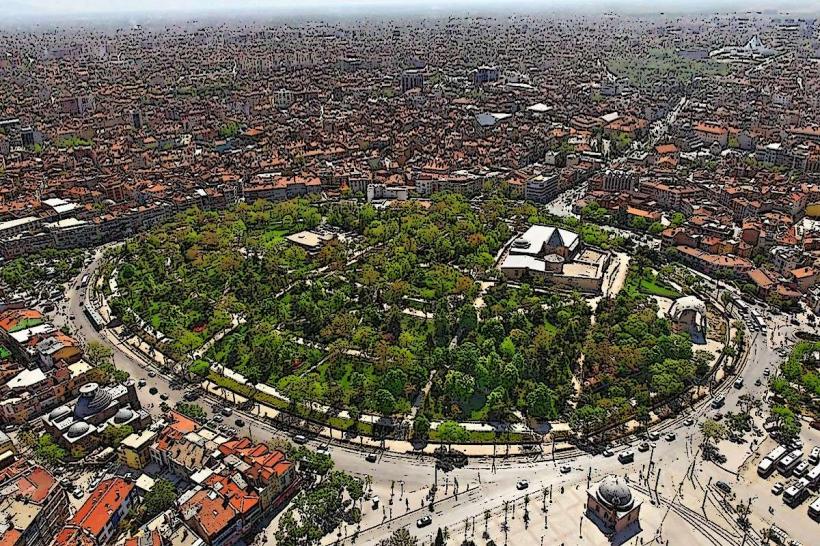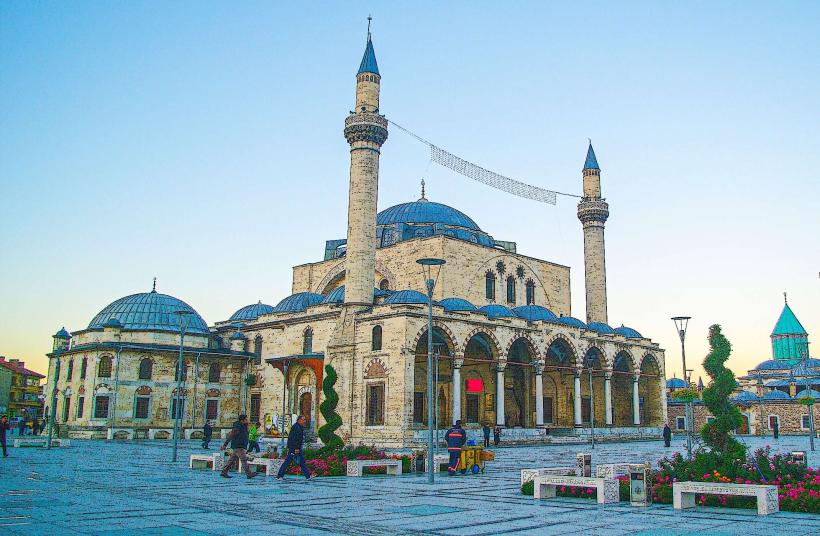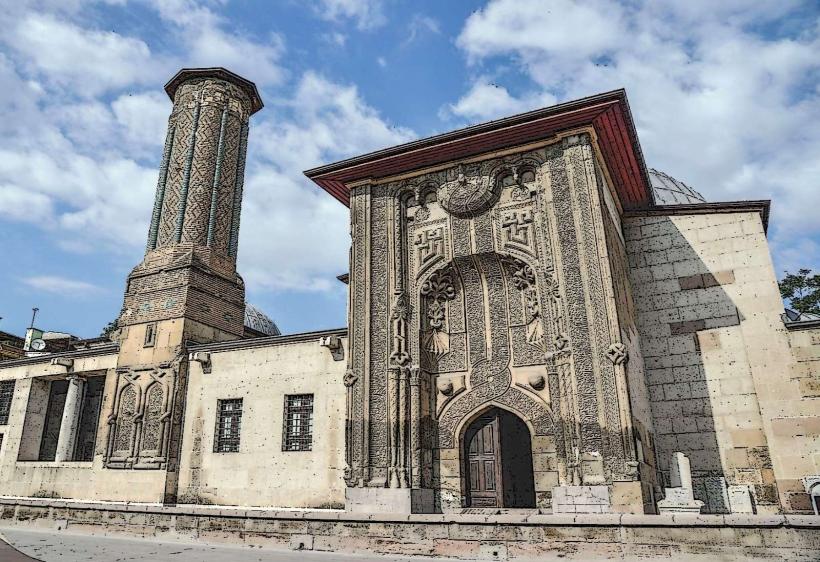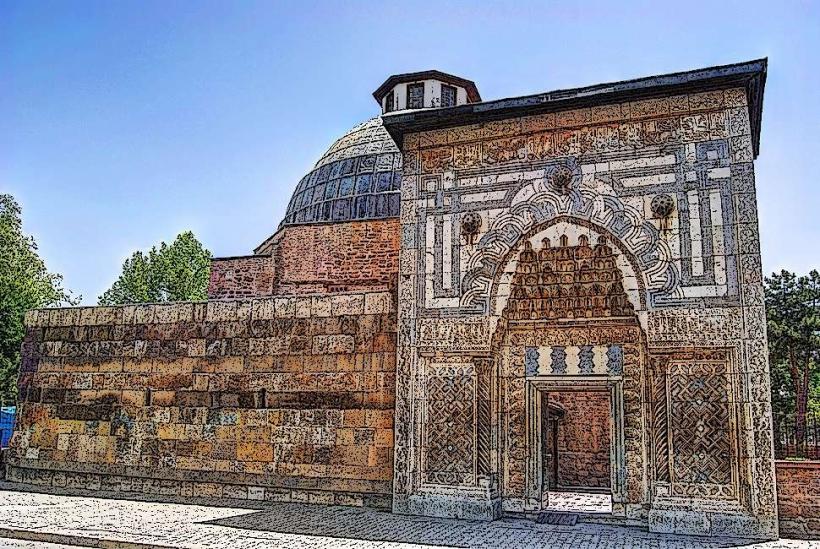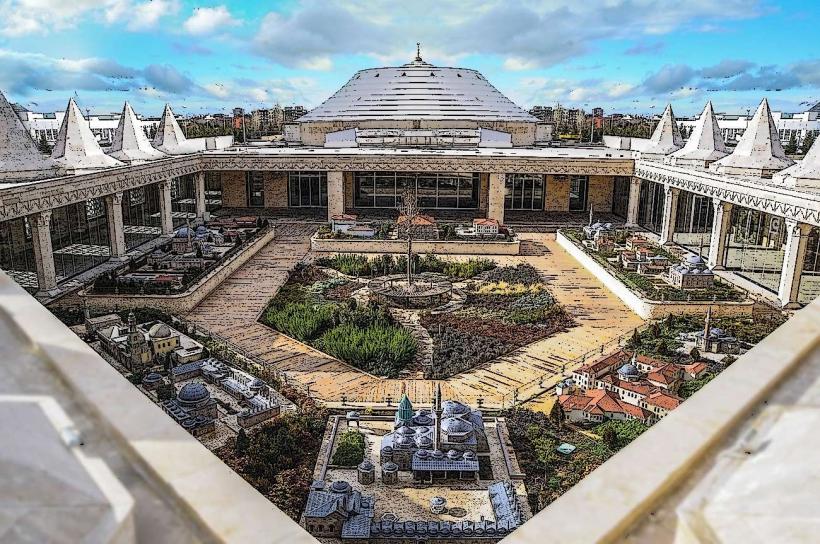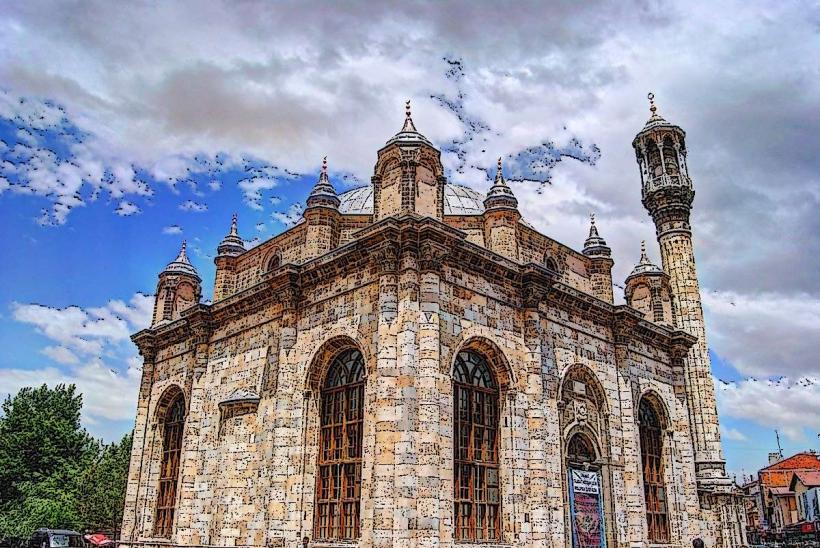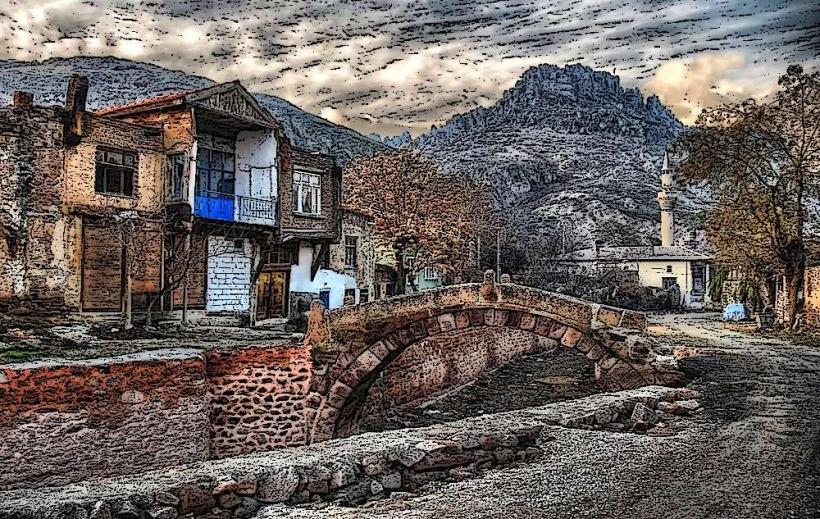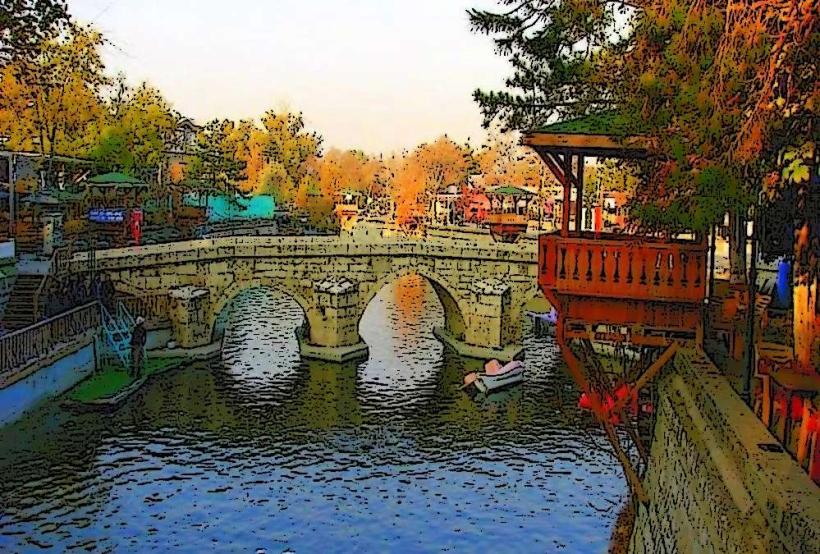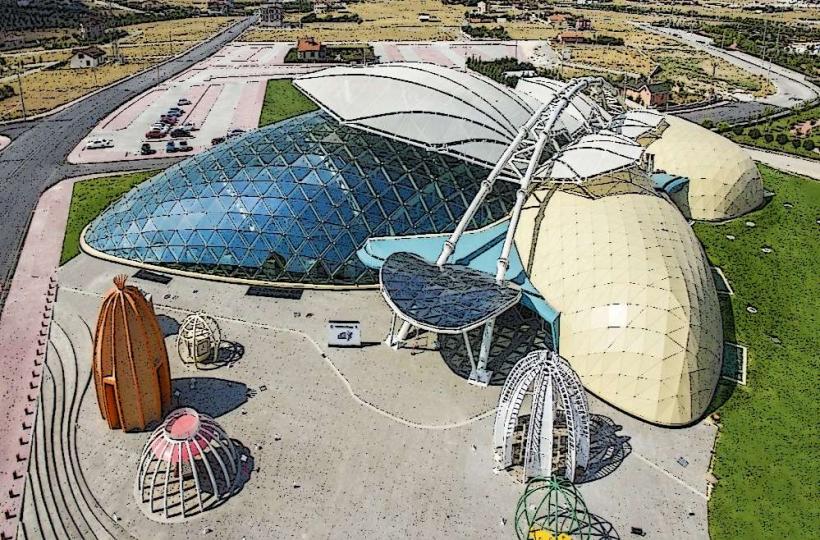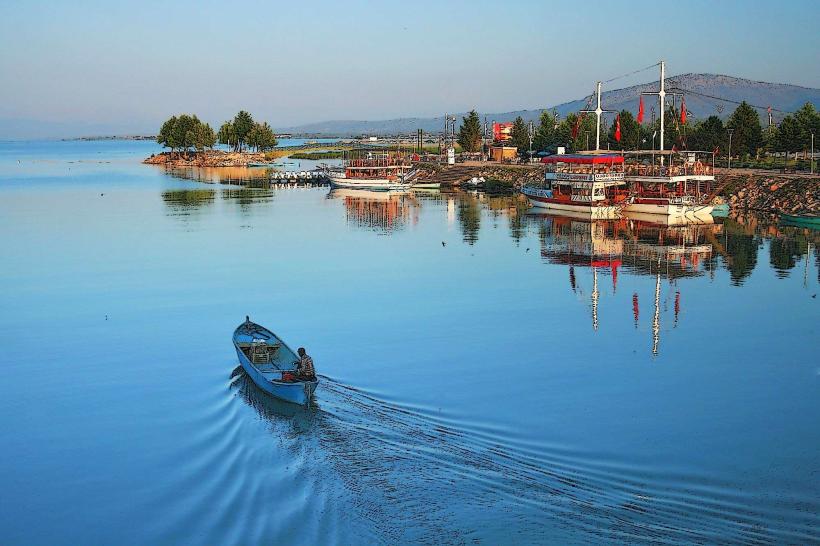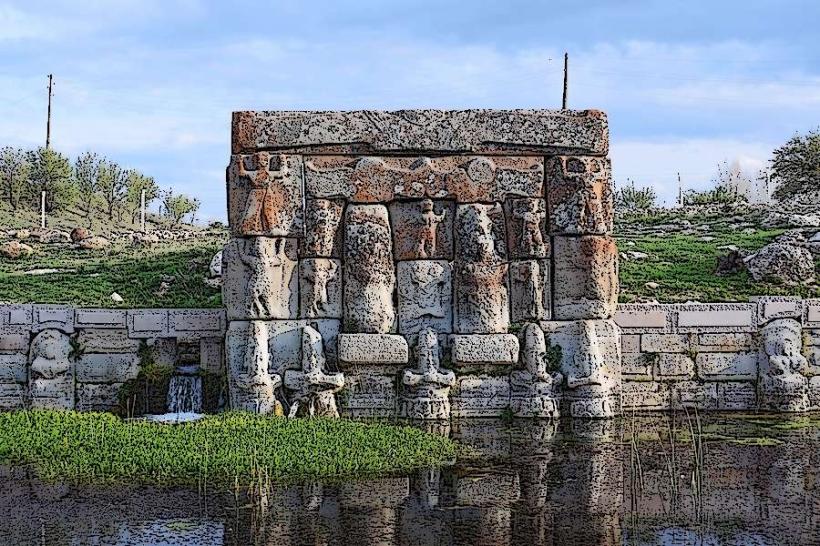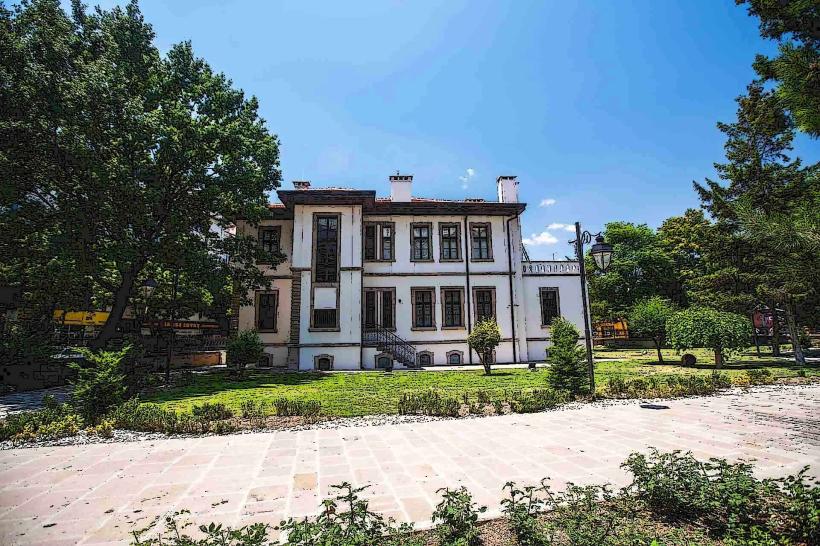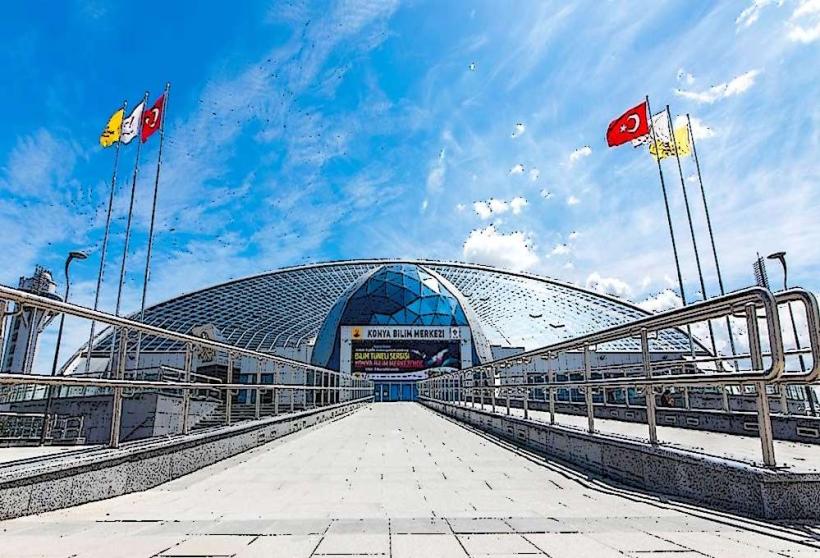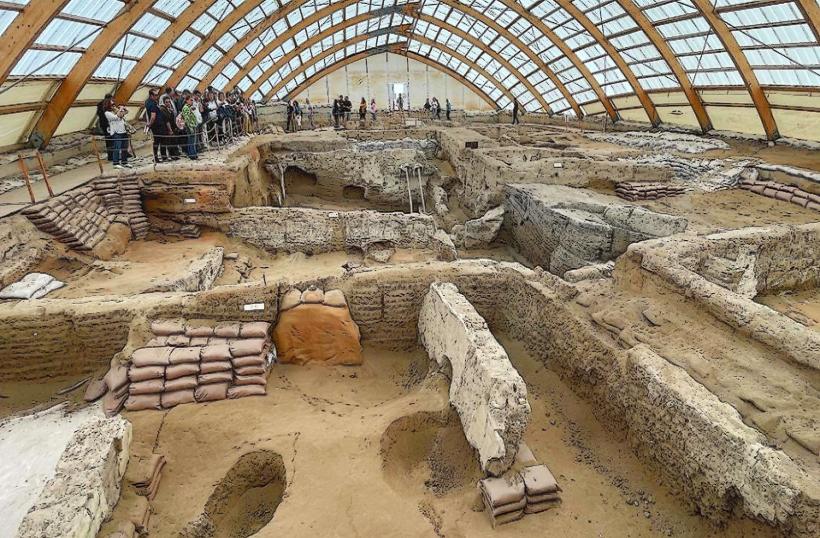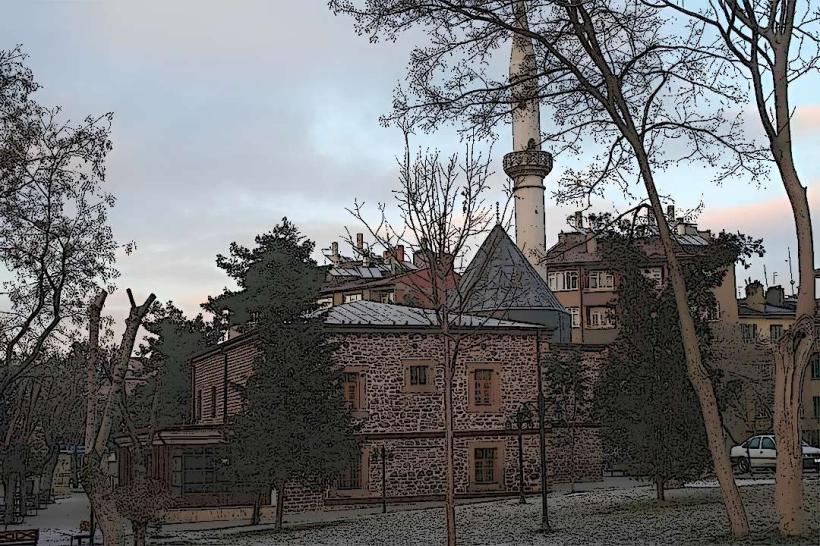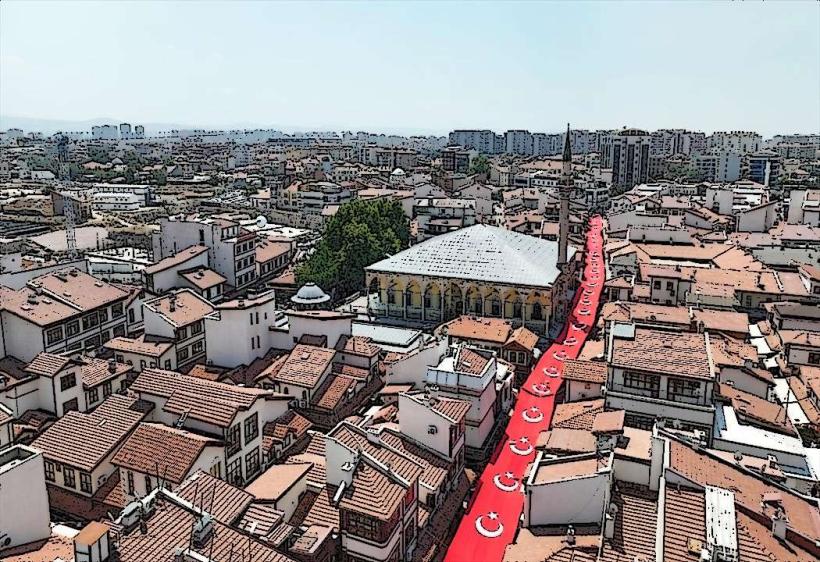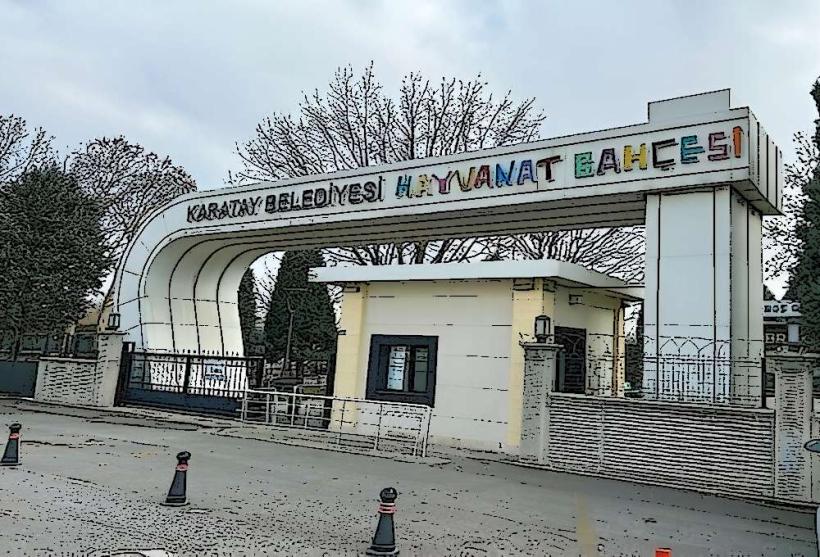Information
Landmark: Mevlana MuseumCity: Konya
Country: Turkey
Continent: Asia
Mevlana Museum, Konya, Turkey, Asia
The Mevlana Museum is a former dervish lodge and monastery located in Konya, Turkey. It is dedicated to the poet and Sufi mystic Rumi.
Visual Characteristics
The museum complex is primarily constructed from stone, with a distinctive turquoise-tiled dome capping the main mausoleum. The architecture exhibits Seljuk and Ottoman influences, characterized by intricate geometric patterns and calligraphic inscriptions. The central courtyard features a fountain and is surrounded by a portico supported by stone columns.
Location & Access Logistics
The Mevlana Museum is situated in the center of Konya. It is approximately 1.5 kilometers from the main bus terminal. Visitors arriving by car will find limited street parking in the immediate vicinity; a paid parking lot is located about 300 meters to the west. Public transport options include the Konya Tramway, with the Mevlana stop located 200 meters from the entrance. Several local bus routes also serve the area.
Historical & Ecological Origin
The site was originally a rose garden belonging to Sultan Alaeddin Keykubad, which was later gifted to Rumi's father, Bahauddin Veled, in 1220. Rumi himself lived and taught here until his death in 1273. The structure was converted into a lodge for Mevlevi Sufi dervishes and later expanded over centuries. It was officially opened as a museum in 1926.
Key Highlights & Activities
Visitors can explore Rumi's tomb, the ceremonial halls (Semahane), the dervish cells, and the library containing rare manuscripts. Demonstrations of the Sema ceremony, a whirling dervish ritual, are sometimes held in designated areas outside the museum complex.
Infrastructure & Amenities
Restrooms are available within the museum complex. Limited shaded areas are present in the courtyard. Cell phone signal (4G/5G) is generally available. Food vendors and cafes are located on the streets surrounding the museum.
Best Time to Visit
The best time of day for photography is generally mid-morning or late afternoon when the sunlight creates defined shadows on the stone and tile work. The museum is open year-round, but visiting during the shoulder seasons (spring and autumn) offers more moderate temperatures. Avoid major religious holidays when crowds may be significantly larger.
Facts & Legends
A local legend states that Rumi's tomb is marked by a single, unadorned stone because he believed that all of humanity was his tomb. The museum houses one of the world's most extensive collections of Mevlevi manuscripts, including original works by Rumi and his descendants.
Nearby Landmarks
- Ince Minareli Medrese (0.2km West)
- Karatay Medrese (0.4km Northwest)
- Aziziye Mosque (0.3km East)
- Konya Archaeological Museum (0.6km Southwest)

